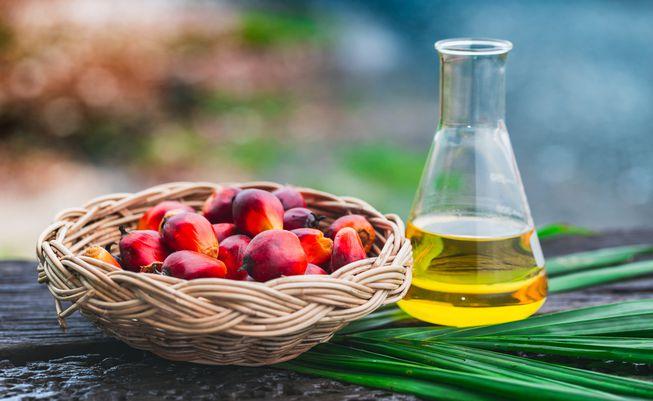A tradition among corporations and a new-born tribulation for the masses—palm oil—what we don’t know may still hurt us?
What is defined as “an edible vegetable oil derived from the mesocarp of the fruit of the African oil palms” is about as random as oat milk: a new fad at your local bistro. However, palm oil has been esteemed controversial on both health and environmental grounds, so when it comes to rustic pasta sauce stick to your common kitchen oils and you may just save the world a little.
Palm oil has a myriad of benefits, according to newspaper The Independent: a true contribution in preventing vitamin A deficiency, cancer, brain disease, and even aging. It is also used to treat malaria, high blood pressure, high cholesterol and dementia. How ironic that palm oil is used for weight loss and metabolic increase yet serves just as well the stuff we fry our tater tots in.
This product is quite the noise behind the curtains, and the demand just keeps rising. Its popularity is largely due to lack of including trans fats, and being packed with “good fats.” With the growth in demand for palm oil, current sourcing practices are not sustainable. The truth behind this new hot trend is a lot more mysterious than one may think. It’s all smiles until you realize it’s a bit of a double edge sword, and that goes for most lovely things—an unfortunate life lesson in itself.
Remaining ignorant or uninformed about something will allow you to not have the sense of responsibility to worry or think about it. Palm oil is found in roughly half of the packaged products sold in US grocery stores, and is now one of the world’s leading causes of rainforest destruction. Palm oil has been an insanely omnipresent issue, and this time our perceptive urgency has proved absent until recent activism.
Oddly enough, Iceland became the first retailer in Britain to announce its pursuit to phase out palm oil in home-centered products—nevertheless, this is merely a piece of corporation-led consumer activism which ignores the complex reality of oil palm production and its environmental consequences.
We all thought vegan cheese and fancy soaps were sexy until we learned that palm oil production is entirely responsible for human rights violations and modern day slavery on plantations in Indonesia and Malaysia. Not only is palm oil destroying forests, but it’s hurting people too. These are the largest producers, “accounting for roughly 90% of global supply,” according to The Lowy Institute, and widely existent in a range of cosmetics and confectionary.
Palm oil truly is a nasty secret. Plantations initiation attributes to the massive clearing of rainforests and carbon-born peatlands giving humans an additional contributing factor point in the losing race for climate change. Since it is used in a large variety of products from soaps to makeup to candy, it’s hard to avoid such a deadly additive. Assuming the destruction of what is natural only leads to the to extinction of what occupies it: treasured wildlife variety amidst the culturally and biologically diverse ecosystem.
Now hold on, this all sounds a little extreme—how were we supposed to know Hershey’s Chocolate and Top Ramen were leading causes in slavery, pollution, and extinction? That’s the thing—we weren’t supposed to know. “What we don’t know won’t hurt us” never fails to stir up something sketchy.





![[Both photos courtesy of sonoma.edu]
Ming-Ting Mike Lee stepped in as the new SSU president following Sakakis resignation in July 2022](https://sonomastatestar.com/wp-content/uploads/2024/04/CC4520AB-22A7-41B2-9F6F-2A2D5F76A28C-1200x1200.jpeg)


























